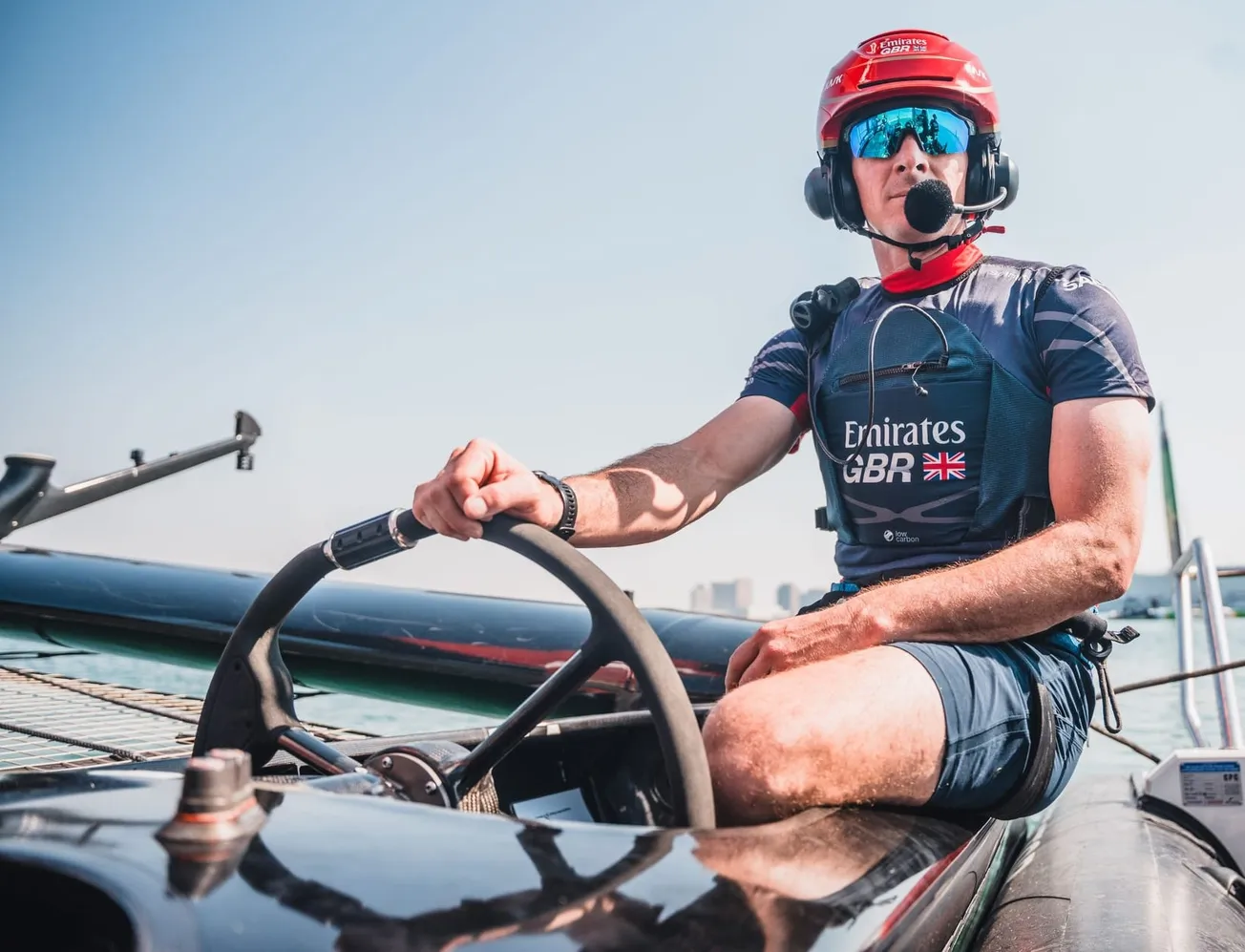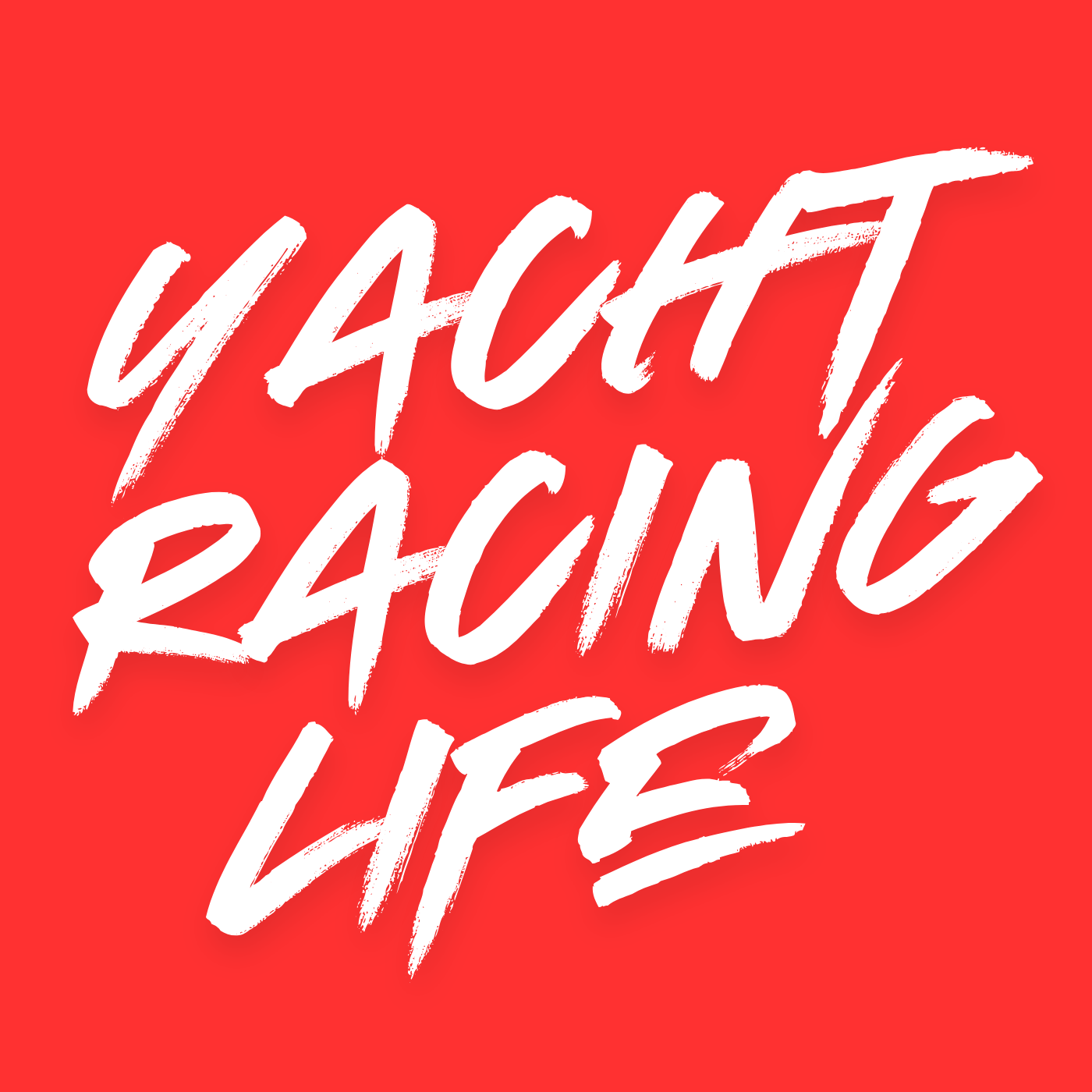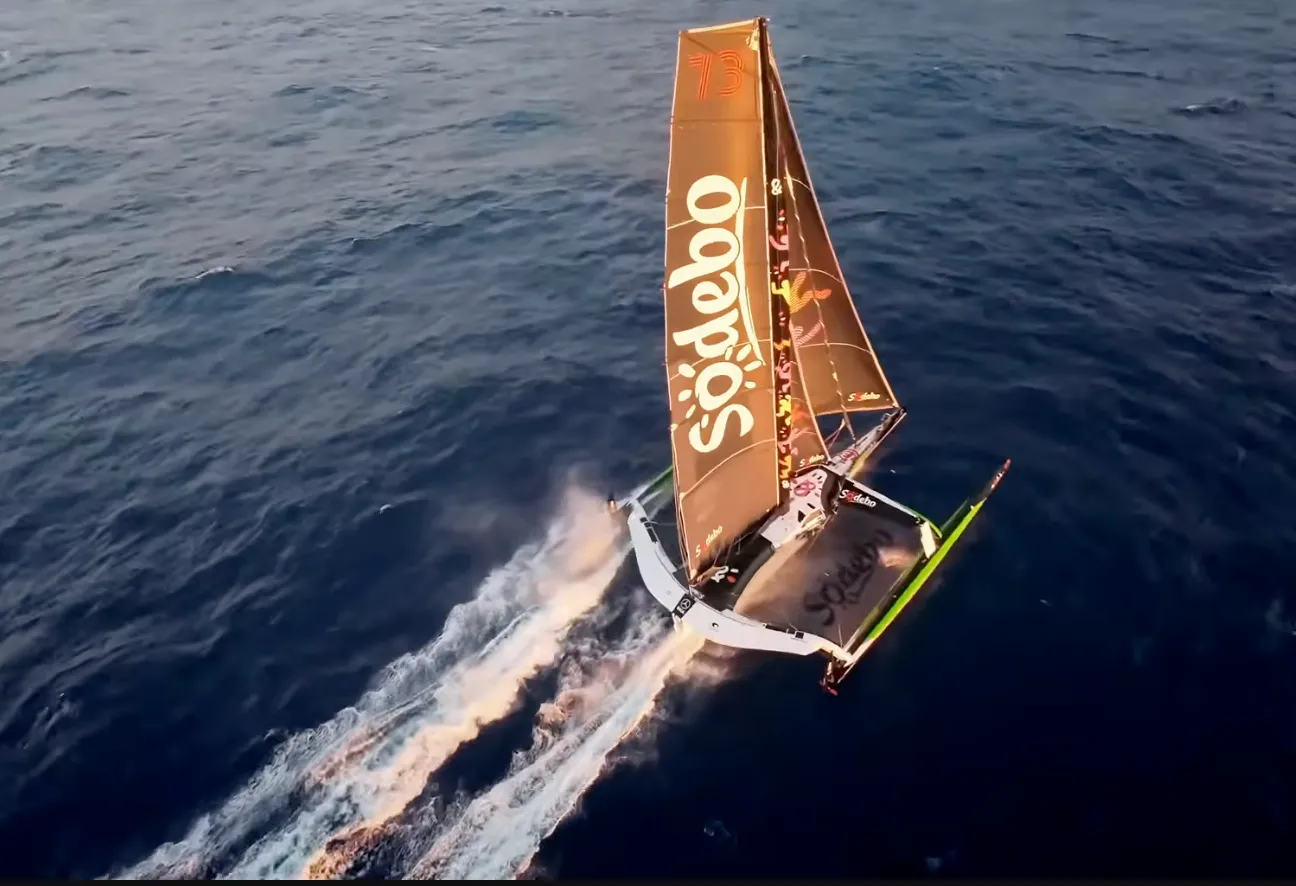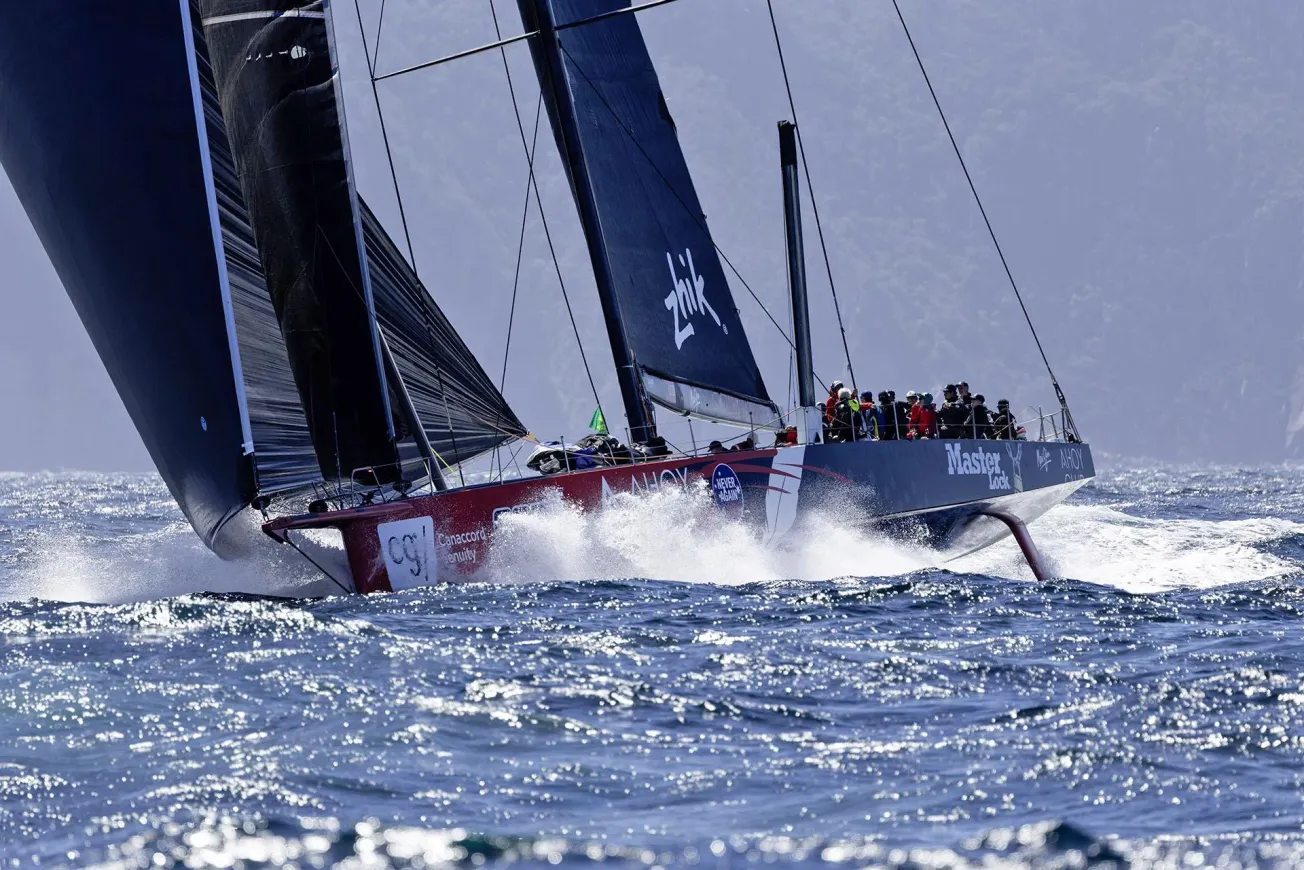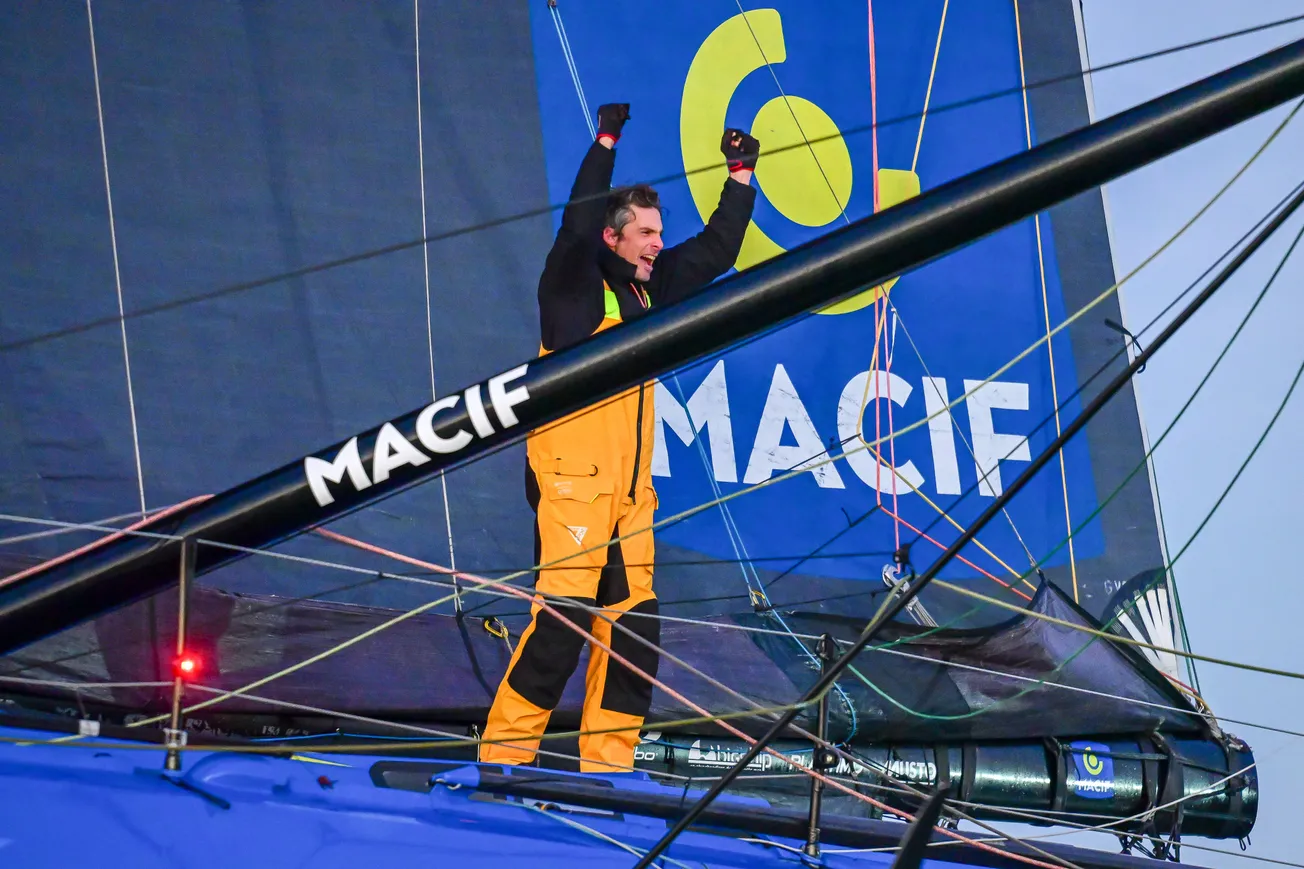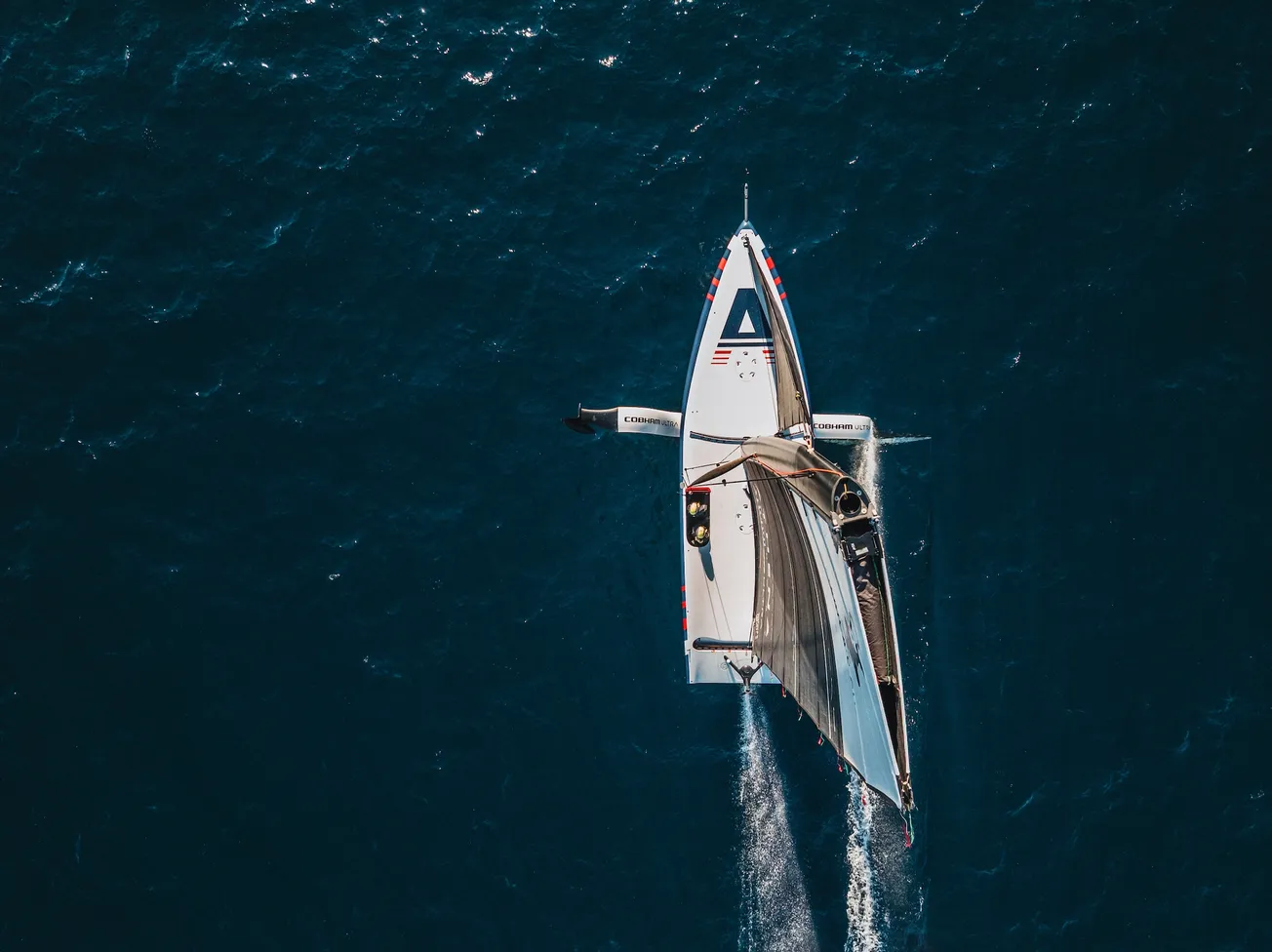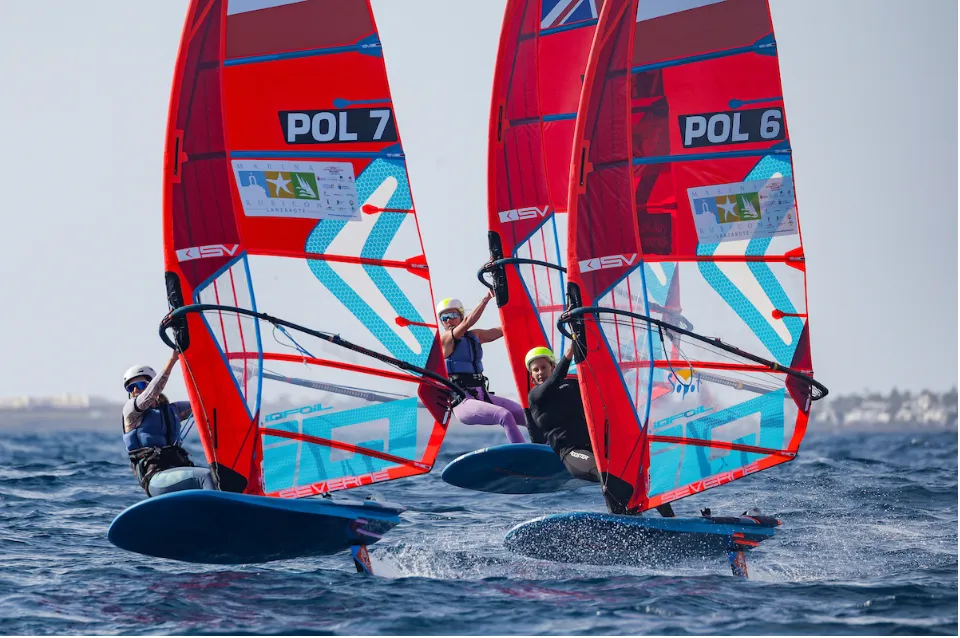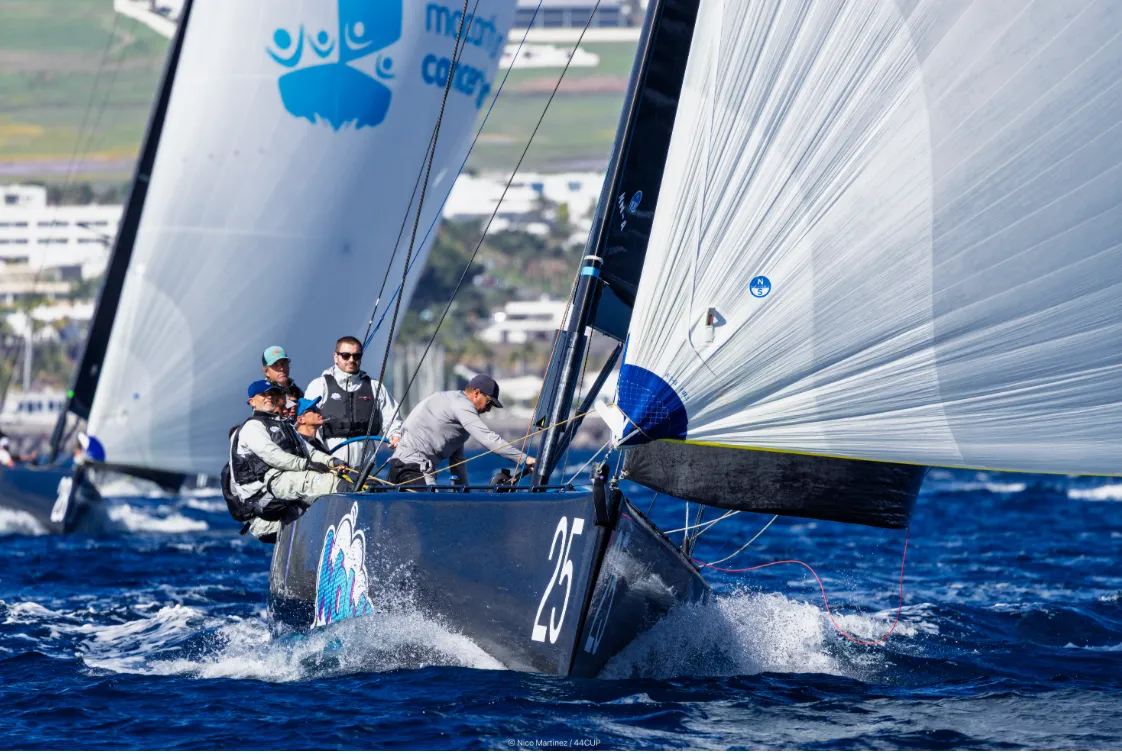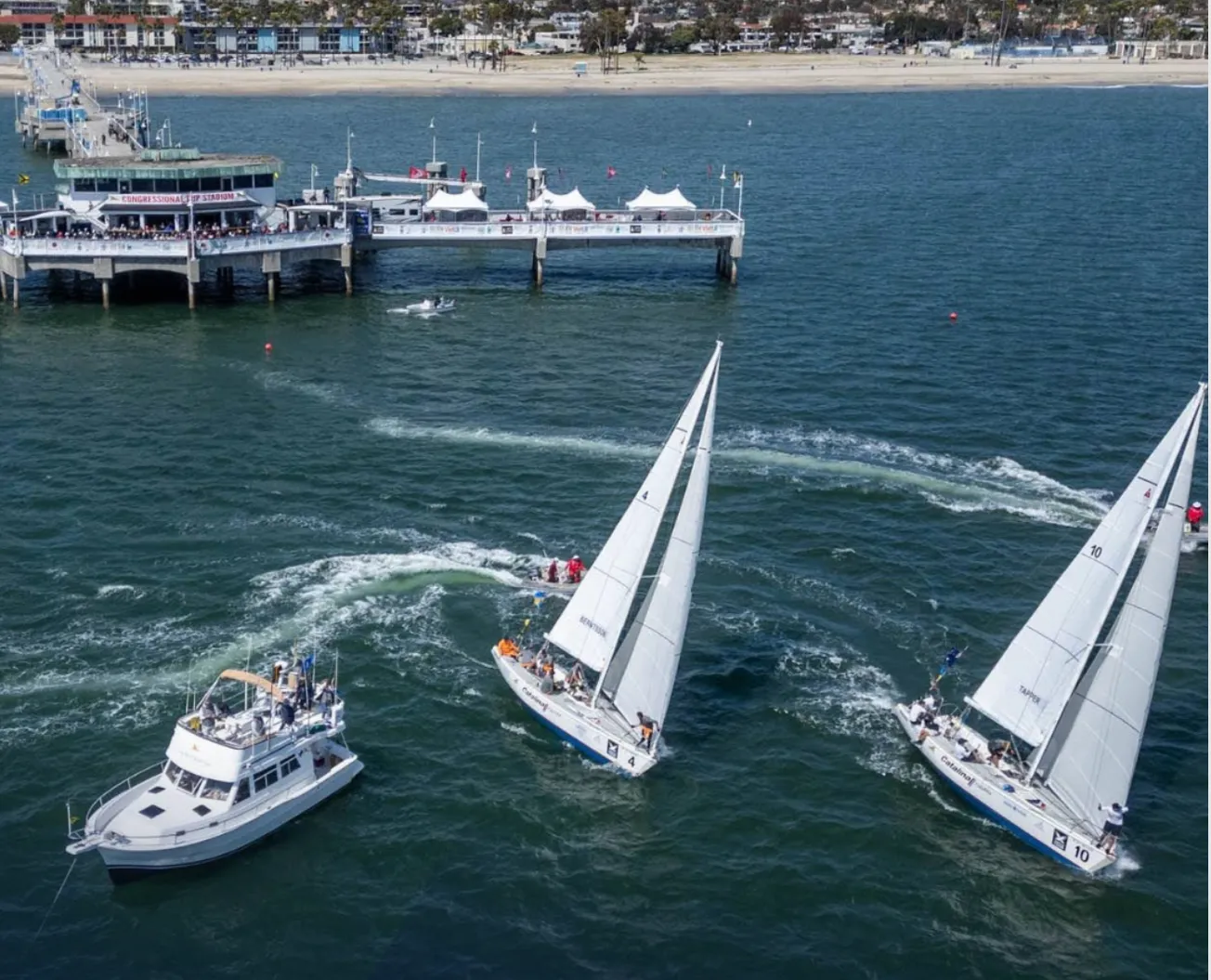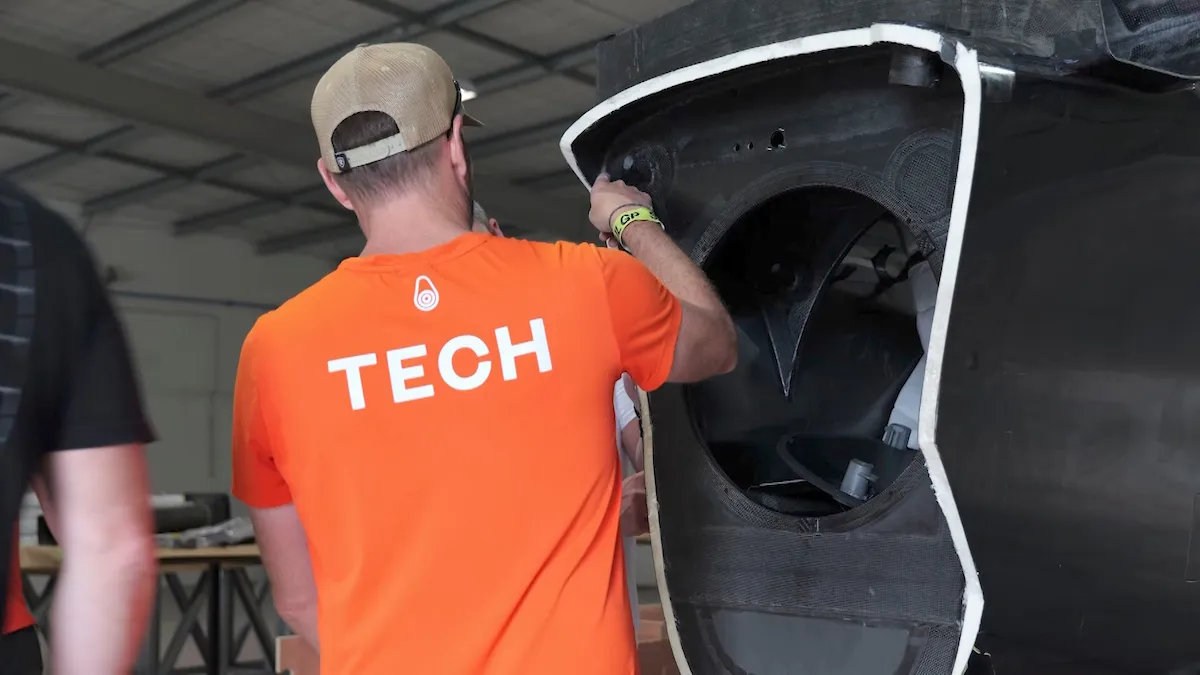On October 13th last year Ben Ainslie’s British challenger squared up against Emirates Team New Zealand in the opening race of the 37th America’s Cup Match. It was a milestone moment for UK sailing as Ainslie’s syndicate became the first British challenge for 60 years to make it into an America’s Cup final.
Meanwhile, for British sailor Dylan Fletcher – port helm opposite Ainslie aboard the high-tech foiling monohull AC75 – it was the fulfilment of a long-held dream to one day compete for his country in sailing’s most ancient and prestigious competition.
Fletcher’s America’s Cup dream dates back to his teenage years, when he was an up-and-coming youth sailor competing in the double-handed 29er skiff class who had already set his sights on winning an Olympic gold medal. After a successful transition into the 49er, Fletcher – sailing with Alain Sign – finished sixth at the 2016 Olympic Games in Rio de Janeiro, Brazil. In the following cycle in Tokyo, Japan, – this time crewed by 470 silver-medallist, Stuart Bithell – he clinched the gold medal spot after edging out the reigning Olympic champions, Peter Burling and Blair Tuke from New Zealand.
In parallel with his Olympic campaigning, in 2019 Fletcher was recruited to steer the Great Britain SailGP Team in the inaugural season of the high-performance international regatta circuit. The British team finished the five-event season in fourth place in the six-boat fleet. His SailGP experience was cut short, however, when Ben Ainslie took over the team at the end of the first season and replaced the original sailing squad with his own America’s Cup crew.
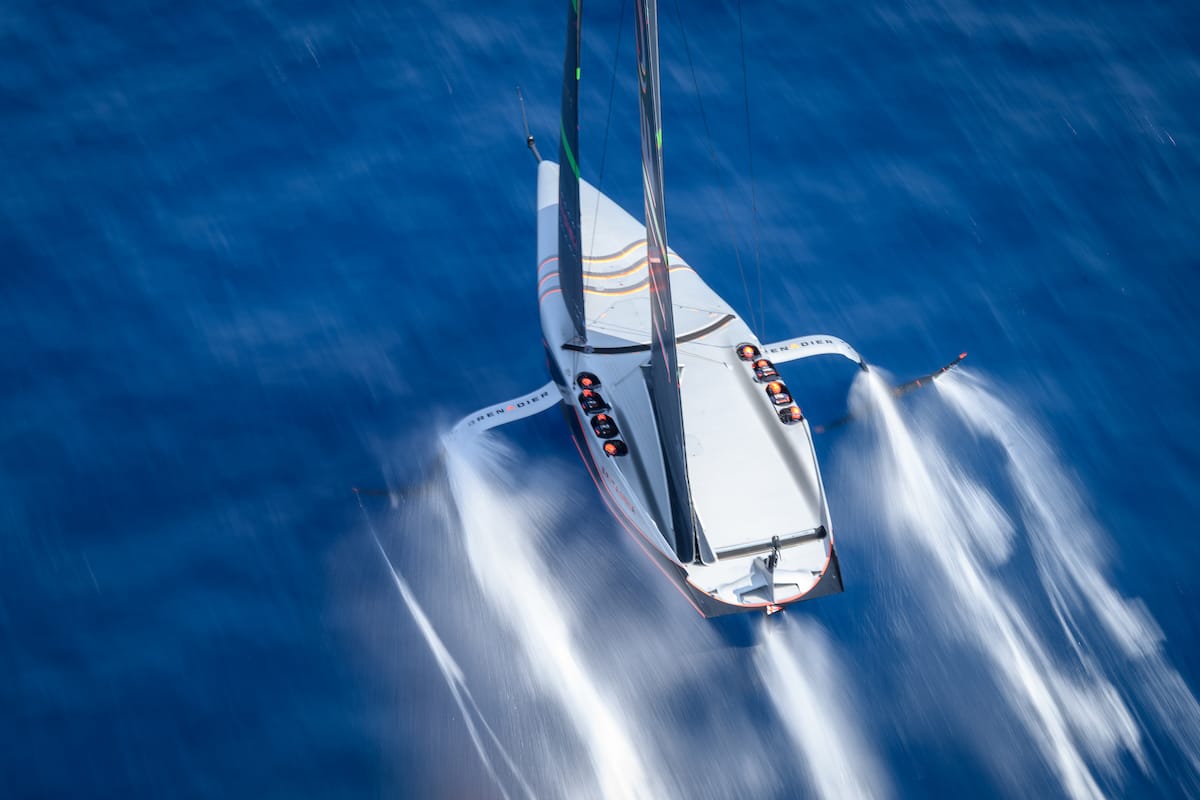
After winning the 2022 International Moth World Championship Fletcher began to – in his own words – ‘pester’ Ben Ainslie for a spot on the British America’s Cup challenge for the 37th America’s Cup. The plan eventually worked when finally Ainslie gave in and offered Fletcher a helming trial at the team’s winter training base in Palma, Mallorca. He passed his trial with flying colours and in March of 2023 he was announced as a full team member.
His role was as a training helmsman that could step in for Ainslie when other commitments – like SailGP events – meant he was unavailable. As the campaign progressed however Fletcher’s currency in the team rose exponentially, to the point that Ainslie chose him over Giles Scott to fill the port helming pod for the Louis Vuitton Challenger Series and subsequently the 37th America’s Cup Match where the British crew acquitted themselves well but ultimately lost 7-2 to the Defenders Emirates Team New Zealand.
On the back of his America's Cup exploits Fletcher was also given the nod by Ainslie to take the helm of the Emirates Great Britain SailGP team for Season 5. It's a role in which he has continued to impress. The British F50 crew currently sit in second place in the 2025 Season Championship rankings after five events.
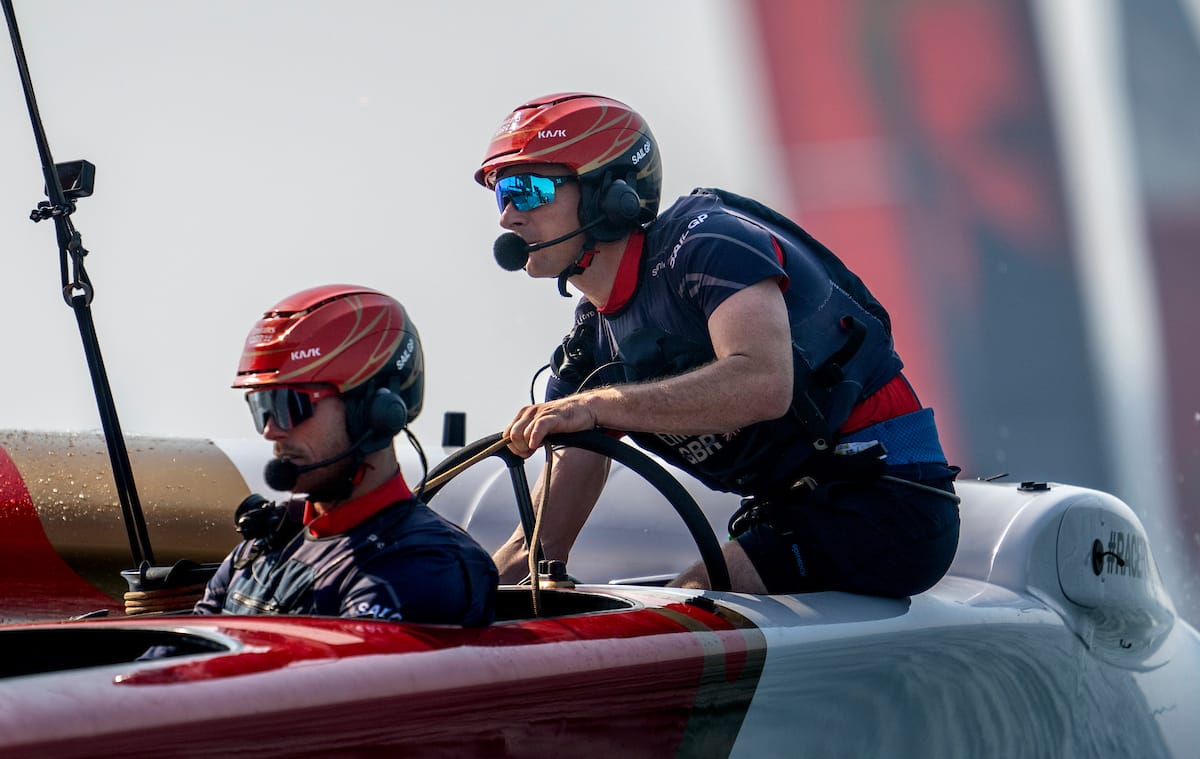
Fletcher was first exposed to sailing as an 11-year-old when his parents sent him on a week-long course in Laser Picos on a lake connected to the River Thames by a lock. He says he was a ‘sporty kid’ who had also attended football and tennis camps previously during the summer holidays. He even dabbled at go karting and recalls briefly entertaining thoughts of being a Formula 1 driver before the prohibitive costs of that sport put paid to that dream.
When the family relocated north to the British Midlands Fletcher’s parents enrolled him at Northampton Sailing Club where he remembers initially enjoying “messing about in boats” in the club’s cadet programme, before being introduced to racing in the Hobie 405 fleet. He took to it like a duck to water and soon clocked up a win in the local Anglian Water open meeting traveller series – an event that, coincidentally, was won by fellow British America’s Cup squad member Giles Scott.
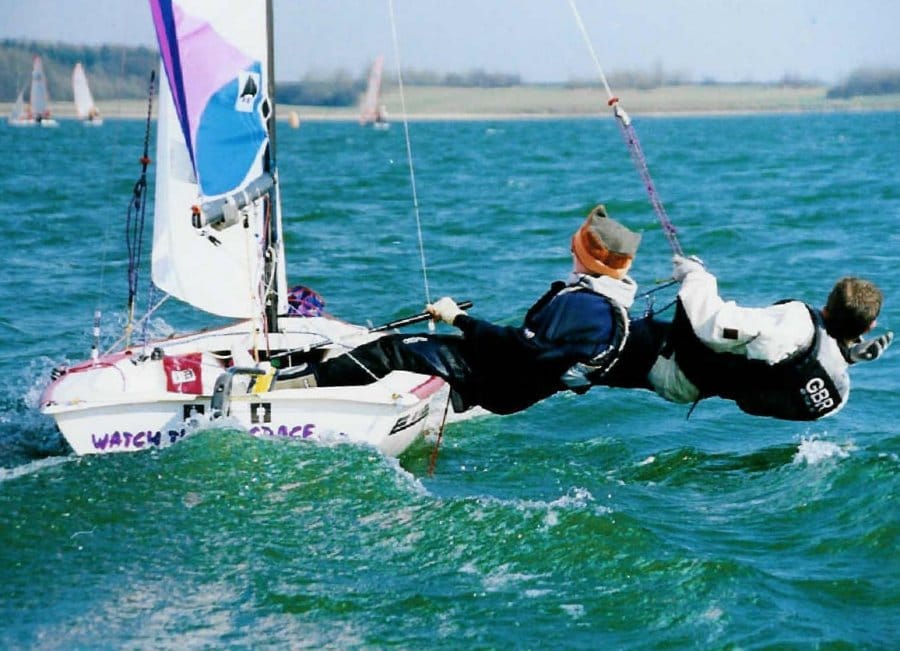
By age 14, Fletcher was fully addicted to dinghy racing.
“I seemed to be quite good at the racing side and I just got hooked. I think it was quite frustrating at times for my mum and dad, when they saw the amount of effort that I put into my sailing versus my schoolwork. I read every sailing book I could get my hands on – particularly Jim Saltonstall’s ‘Race Training’. That was one of the ones that I remember just reading religiously over and over again.”
Northampton Sailing Club was a hotbed of talent where some of the top names in British dinghy sailing would compete in evening and weekend racing.
“It was a good setup with regards to bringing people in and teaching them,” Fletcher recalls. The chandlery Pinnell & Bax was only 10 minutes from the club, so you'd get Ian Pinnell and all these other top people racing in the Thursday night club race. I guess all that is a big part of why I became so hooked on dinghy racing.
We hope you are enjoying this free post. Feel free to share it with anyone else you think might be interested. To access to our archive of member-only posts sign up now for a free no-obligation 30-day trial.
After winning the bulk of the Hobie 405 events Fletcher graduated to the 29er and was quickly accepted on to the RYA Transitional Programme – the first stepping stone for anyone aspiring to go to the Olympics. Six months later he was invited to join the National Squad and began training at the Weymouth and Portland National Sailing Academy alongside the British Olympic 49er squad.
“We would watch the likes of Chris Draper and Simon Hiscocks (bronze medallists at the Athens 2004 Olympic Games) out training in Weymouth and it was inspirational. I think that’s when sailing changed from a sport that I really loved into a potential opportunity to go to the Olympics. So then I started to put even more time and effort into sailing. I was always at the sailing club, sailing whenever I could. I would go crewing on national twelves and any other boats, just so I could be out there.
Fletcher had planned to go to university to study engineering. At the back of his mind he had a long-term plan to become a Formula 1 design engineer. However, those plans were put on permanent hold after he and Rob Partridge finished second in the 2006 29er World Championship. That opened the door for a place in the RYA Olympic development squad and the real possibility of going to the Olympics.
“Two weeks before I was due to start at Portsmouth University I got the call to say I had a place if I wanted it. I didn’t hesitate. I deferred my university place for a year and focused on being a full time sailor. At that time I was working at Pinnell & Bax and also doing some coaching too.”
For the 49er Fletcher was paired with British sailor Alain Sign – winner of the 2004 29er World Championship. Compared to the Youth Programme the Olympic Development Squad was a big culture change.
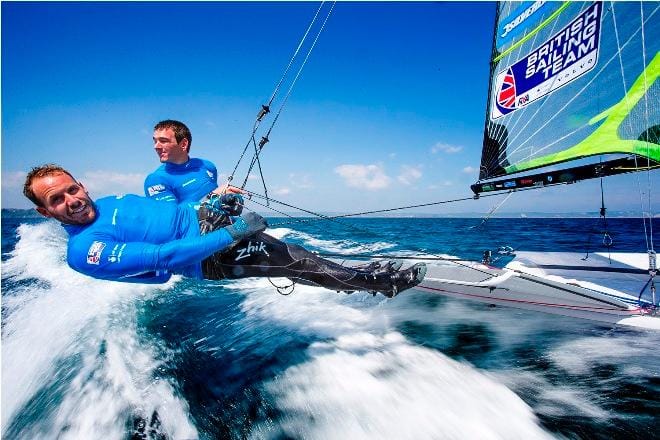
“I remember at the first training camp they told us: ‘If you're here just to take part, then there's the door. If you're here to win then stay sat down’. And it was quite a change from the Youth Programme which was much more inclusive. I really enjoyed that sort of elitist approach – but the programme was quite brutal. We got put on trial quite a lot. The performance criteria was quite high. It wasn't until we came fifth at the World Championship when I was 21 that we finally got put on the funded Performance Programme. We still did a lot of days on our own, a lot of hard yards training out of Warsash in the winter.”
Despite being late to the party for London 2012 Fletcher and Sign found themselves in with a shot of qualifying. However the final trial events turned out to be a disaster.
“We were always an outside shot for 2012 but we picked up really quickly. But unfortunately, when it came down to the actual trials we had some boat and equipment issues. We broke all sorts of various things and had boats delaminate. In reality, it was just a bunch of schoolboy errors because this was our first Olympic campaign.”
The pair bounced back to win the British 49er trials for the Rio 2016 Olympic Games after a close and hard fought battle with rivals John Pink and Stuart Bithell. They finished sixth at the Games after two poor opening days that saw them languishing 14th before staging a comeback to fourth overall by the end of day four. 13 points out of the podium places, but still with a mathematical chance of a bronze or silver medal (gold had already been tied up by New Zealand’s Peter Burling and Blair Tuke) the British crew decided to target the second-placed German team Erik Heil and Thomas Ploessel who sat three points ahead of Australia’s Nathan Outteridge and Iain Jensen in third.
Having executed the first part of the plan perfectly by match racing the Germans out at the start, Fletcher and Sign had to sail hell for leather to try to put enough places between them and the Germans. In the end they pushed too hard and capsized – ending their medal hopes in an instant.
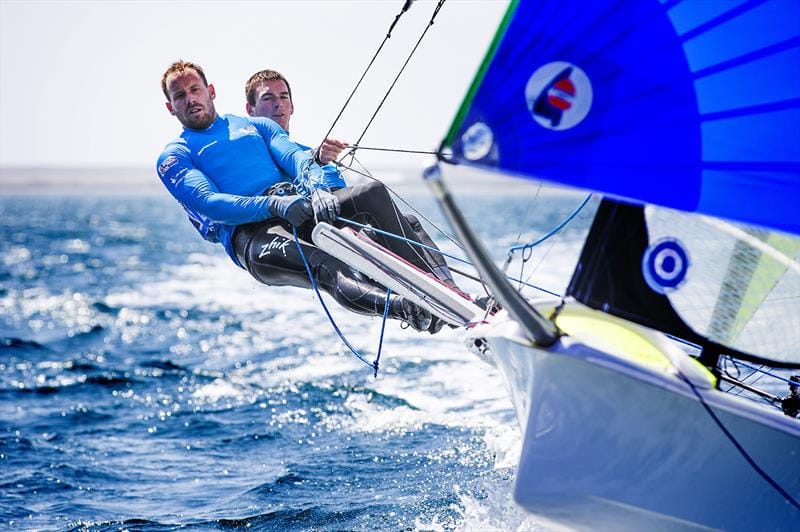
Despite ultimately missing out on a medal, Fletcher stands by that medal race strategy.
“It was always a really big ask to get into the medals. We decided to take out the Germans because we knew that the Australians were never going to mess up – they were just too solid. But we thought the Germans might be vulnerable so we went for them in the pre-start. Then we set about overtaking all the boats – but then ended up capsizing. I don't have any sort of regrets in terms of how we approach that medal race. I think we finished, roughly speaking, where we should have done. We were ‘potential’ medallists, but I think what I learned at the end of that cycle is that you have to go to the games as a ‘probable’ medallist.”
That key lesson was very in Fletcher’s mind when he partnered up with 470 silver medallist crew Stuart Bithell for the Tokyo 2020 Olympic cycle. It quickly became apparent to both of them that the pairing had massive potential.
“The way that he trims and the way that I steer work really well together,” Fletcher comments. “To put it simply, we were instantly fast.”
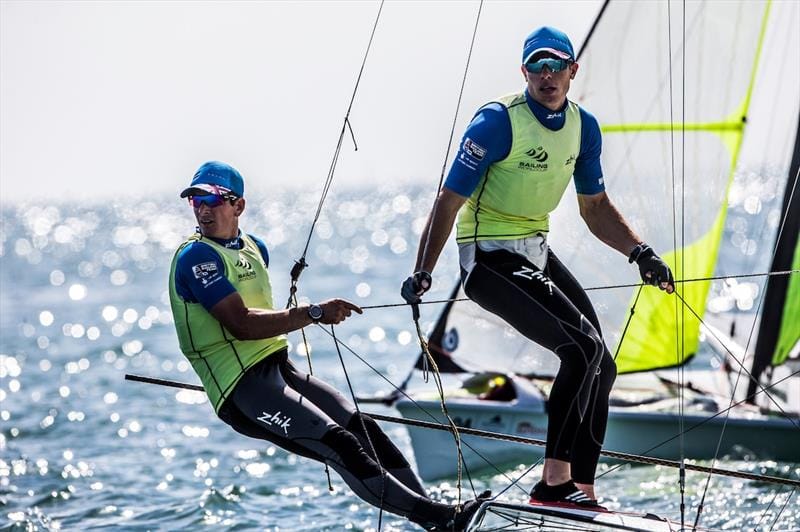
Working with British mentor Joe Glanfield (470 double Olympic silver medallist crewing for Nick Rogers) Fletcher and Bithell worked hard on improving their communication and decision making skills around the racecourse.
“Previously I felt I had been a bit up and down in that area. So we really worked hard on that process to deliver more consistency. I used to sometimes get too serious, getting really hard on myself, even angry at times. So something we worked on was having a laugh in the boat. Before I sailed with Stu you would rarely see me having a laugh – especially if we weren't doing very well. Stu’s big strength is that not only is he a fantastic sailor, but he has the ability to remain level-headed, regardless of what's going on. That’s super impressive.”
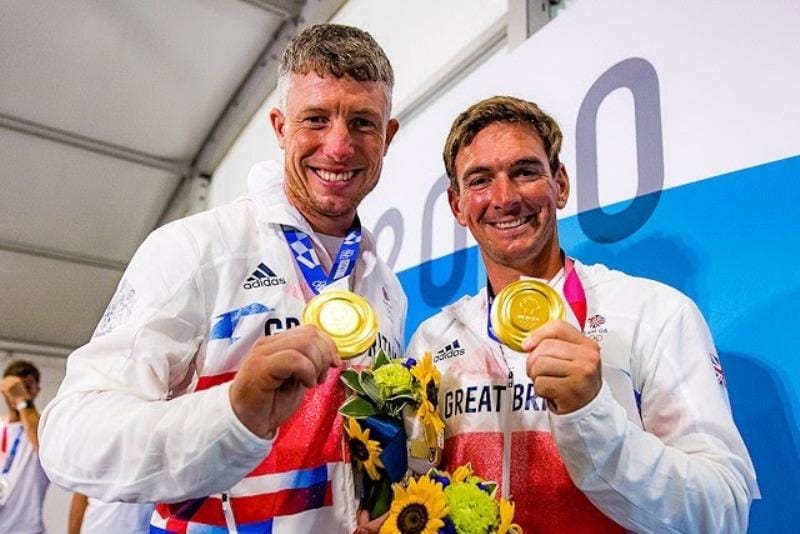
Famously, Fletcher and Bithell clinched their Tokyo 2020 49er gold medals by winning the medal race after surging past the Germans Heil and Ploessel as the two boats gybed at the finish line. That late surge meant they had tied on points with Burling and Tuke (who had led into the medal race but finished it in third) with the tie being split in favour of the British.
Fletcher returned home with his Olympic gold medal dream achieved at the end of almost a decade of hard work. After the devastation the pair felt when they lost their seats in the Great Britain SailGP Team their Olympic achievement more than made up for it.
Find out the rest of Dylan Fletcher's journey in part two of this story, coming soon.
Get all areas access to Yacht Racing Life with a Full Membership free 30-day trial. There's no obligation and you can cancel at anytime.


